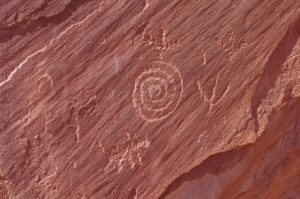What Creativity Isn’t
Many people make the mistake of associating creativity with the act of creating. As artist Kurt Wenner points out, creativity is a process, not a phenomenon. Creativity can occur without any physical change taking place. Any kind of assembly or manipulation performed in a conventional way is not creativity. Additionally, creativity does not necessarily produce something of value. There have been many creative works that were not recognized for their incredible value until long after the creator’s death. Often, doing or producing something truly innovative results in a rejection from society rather than acceptance.
 Divergent Thinking
Divergent Thinking
Sir Ken Robinson calls creativity “divergent thinking”. To him, the hallmark of creativity is its essentially contradictory nature. A creative person rebels against traditional thinking. They are gifted at dealing with unpredictability, something that seems more innate than learned and is often crushed by formal education. Creativity requires a willingness to be wrong. Those who are unprepared to be wrong will not come up with anything original.
Creativity
To Intuitives, the whole purpose of consciousness is creativity. People who think creatively are often said to be able to “think outside the box”, while those who think realistically are called linear thinkers. Where constraints are accepted and norms are followed in the process of creating, creativity is lost. Creativity requires a mind willing to go wherever ideas lead, to explore original paths and to express deeply meaningful concepts artistically. A creative soul is one not bound by the laws of heaven or Earth, one who is driven to push past all barriers to find the treasure they seek, whether it be scientific, religious, or personal. It is the mental process that delves and flies through the cognitive landscape until eventually arriving at a uniquely suitable idea or design that constitutes true creativity.
Symbolism
Like Dan Brown’s famous protagonist, Robert Langdon, Intuitives are always on the lookout for symbols, and are experts (of varying ability) at determining their meaning. They have a facility with written language, letters being the most prominent symbols of modern civilization. Their vocabularies tend to be extensive, every word laden with meaning, including connotations and subtle variations of meaning based on word placement or sentence structure. They can detect subtle differences when examining abstract concepts. They are able to “read between the lines” better than most, and can pick up on connotations of words, hear complex emotionality in speech, and detect nuances in all areas of human communication and art. Such an ability with implied meaning can allow them to express themselves and interpret others with profound insight.

Inspiration
It has been said that Intuitive individuals can somehow untangle ribbons of truth from the mass of data that they collect and are exposed to. Intuition has been called “knowing without knowing” and “unconscious reasoning”. People refer to “following your gut” or “listening to your instincts”. And there are other possible sources from which inspiration can come, linked to religion, spirituality, metaphysics, and even philosophy. While its origin and function remain mysteries, there is no denying the power of this tool in the hands of an experienced wielder. Inspiration is more than just imagination. It demands action, even if the action asked for is merely an acceptance of revealed truth. For artists, poets, novelists, actors, and even inventors, it is the source of their creativity, what gives light and direction to their yearning to produce something original. For one to find an answer, one must specify a question. Begin by framing in your mind what you are seeking as clearly as possible. To find it, one must be able to quiet their mind and listen, be patient, actively work toward your goal, doing what you can, and wait for that burst of insight to arrive.

Theory Formation
Intuitives are lateral thinkers. The “box” fades away as they find novel ways to do things. But to make intuitive leaps requires some basic information. They need to understand the way things work. Their curiosity drives them beyond the how and into the why of things, whether the subject is the operation of a clock, a growing plant, or a romantic relationship. The Intuitive wonders: why do these things work the way they do? Then they set out to investigate them by forming theories. Experienced Intuitives strong in Theory formation are good at coming up with plausible theories. They do this by using their imagination to run tests and measure out what they know against what they don’t. Often, what they come up with is a good start for a real and valuable theory that can stand the test of time and real experimentation. Once they learn what is needed, they are usually quite gifted at following through with the experimentation process, running their theory through a system of rigid requirements until they can truly determine its worth, and modifying it as needed. Our modern world runs on theories. Without them, we’d still be riding horses and cleaning up after them, and a long distance conversation would involve shouting across the street instead of talking into a hand-held device.
Contrasting Creatives
Surely you know some creative people in your life. Maybe you even are one. Find one of them and get them to take the Trait Spectrum. Then compare your results. It can be amazing to see just how different people can be…or sometimes, to see what incredible gifts we share!

